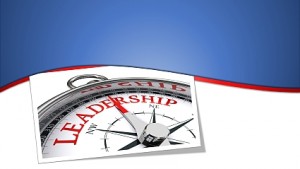In This Article
(Click the links below to move easily to sections of this article)
Leadership: One Size Does Not Fit All
Leadership: The Qualities Effective Leaders Have in Common
Leadership: You’re Allowed to Steal These Behaviors
Video: Common Characteristics of Effective Leaders
Member Content
- Infographic: 8 Actions You Can Take Today to Improve Your Leadership Effectiveness
- Lesson: How to Keep Your Employees Motivated in Chaotic & Uncertain Times
- Article: The Critical Leadership Test that Managers Must Pass
- Video: Strengthening Your Leadership Style
- Minibook: Developing Emotional Intelligence
Leadership: One Size Does Not Fit All
 Since leaders are diverse, there is no one-size-fits-all approach to leadership.
Since leaders are diverse, there is no one-size-fits-all approach to leadership.
In fact, leaders come in different nationalities, gender, generations, personality profiles, etc.
They come with different life experiences.
For example, although they were both war time presidents, President Franklin Roosevelt led and communicated differently from President Harry Truman.
President Roosevelt’s leadership style radiated confidence and he was more outgoing and relationship focused. President Truman’s leadership style was one of a humble realist. He was unafraid of making difficult decisions that might not be socially acceptable.
Leadership is not one-size-fits-all. However, there are some things that all effective leaders do. Share on XThough Harriet Tubman and Dr. King were both civil rights leaders, their leadership styles also differed. Harriet Tubman was an innovative agent of change who used charisma and iron discipline to get others to both follow her and to stay with her when things got difficult. Dr. King was an influential coalition builder who used communication and principled persistence to get others to both follow him and to stay with him when things got difficult.
A look at the tech titans, Steve Jobs and Bill Gates, shows that they also approached leadership in very different ways. Steve was more directive while Bill was more participative.
So, it’s clear that leadership success is not tied to a one size fits all approach. Different people can be successful at leadership.
Does this mean that good leaders have nothing in common? The answer to that question is “no.” Even with the various leaders I just described, they clearly had one thing in common. Specifically, they all were clear about what they needed to accomplish.
To become an effective leader, become clear about what needs to be done. Share on XLeadership: The Qualities Effective Leaders Have in Common
 Given the many seminars, books, podcasts, videos, blogs, etc. given over to this subject, leadership can seem mystifying presenting itself as a complex puzzle in real world situations.
Given the many seminars, books, podcasts, videos, blogs, etc. given over to this subject, leadership can seem mystifying presenting itself as a complex puzzle in real world situations.
Despite all of the talk about leadership and despite the many different ways that people lead, effective leaders do have some common characteristics.
Here are 15 common characteristics of effective leaders:
- They are clear about what needs to be done.
- They can express their vision of a desirable future in simple language.
- They are idea generators.
- They inspire others to follow them.
- They challenge assumptions.
- They accept and use conflict as needed.
- They are imitated by others.
- They are persistent about getting results.
- When they speak, others listen to them (even their detractors).
- They are convincing people.
- They recognize and utilize the unique value of others.
- They tackle difficult problems.
- They can accept not being liked.
- They are not paralyzed by mistakes; they move on.
- They have and know their limitations.
Leadership: You’re Allowed to Steal These Behaviors
 An old proverb says that if you want to be wise you should walk with the wise.
An old proverb says that if you want to be wise you should walk with the wise.
To understand the leadership puzzle, look at those who have led successfully.
While none of them are perfect leaders (and who is), their success shows that they did something right.
These 15 common characteristics are effective leadership qualities that are commonly observed in successful entrepreneurs and successful people in general. It’s a list worth copying! In fact, it’s a list of behavioral traits that you can legally steal and incorporate into your own leadership style.
So, why does this list of the 15 common characteristics of effective leaders matter?
Of what importance is good leadership to you, as a manager in your organization or a business owner leading your company?
The truth is that good leadership has a direct financial impact on your organization, company, or team. Effective leaders produce better outcomes and they outperform their peers. Unlike some, effective leaders are also able to grow as organizations evolve. In practice, good leaders do better for the organization and its bottom line!
To become a wise leader, walk with wise people. Share on XVideo: 15 Common Characteristics of Effective Leaders
This article is accurate to the best of the author’s knowledge.
Content is for informational or educational purposes only and does not substitute for professional advice in business, management, legal, or human resource matters.